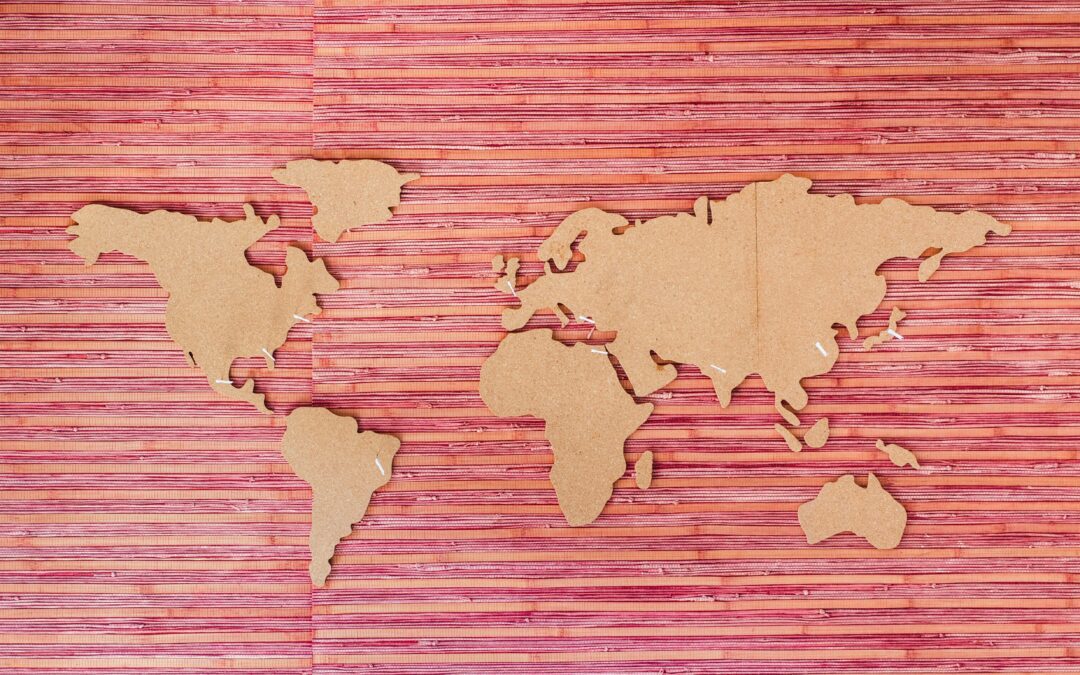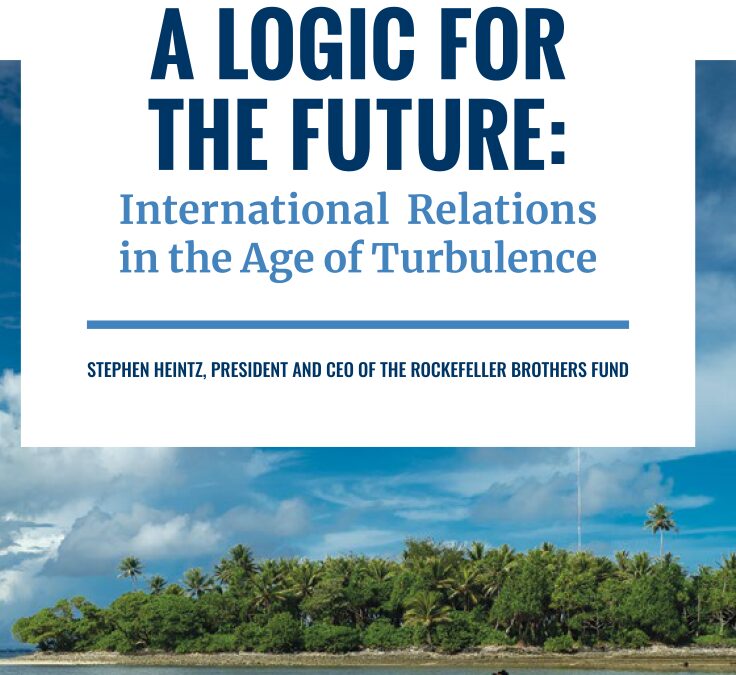by Alexis Papazoglou on The Philosopher and the News….How can philosophy help us understand the different types of crisis, from the arena of science to that of politics? And what kind of political crisis yields a President like Donald Trump? This conversation took place on the day of the US election.
How facing grief can help us navigate a world in crisis
Interview by Nate Hagen….How has an absence of ritual and the avoidance of grief in our culture distorted our relationship to loss – and therefore our ability to protect what we love? What practices do other cultures use to nurture ecological identity and kinship with the more-than-human world? And finally, why might grief, when honored and integrated, be a vital part of building more resilient and ecologically-grounded systems for the future?
Counter-hegemony and polycrisis I: how to eat and how to think
by Raj Patel in The Journal of Peasant Studies…Through examining twentieth-century counter-hegemonic movements, particularly the Italian mondine and the Black Panther Party, this paper advances a theoretical understanding of how counter-hegemony emerges through experimental renegotiations of world-ecological relations. This analysis demonstrates how movements dialectically integrate material practice with intellectual formation, producing new social relations within the interstices of hegemonic power. The mondine struggles against mosquitos and exploitative labour conditions, like the Panthers’ hidden gardens and breakfast programmes, illustrate a crucial theoretical insight: counter-hegemony operates not merely as critique but as practical experimentation with the very boundaries between social and ecological reproduction.
BRICS in 2025
by Tim Sahay and Kate Mackenzie in Phenomenal World…There are now two competing global models of energy and influence: one based on fossil fuels, one on green technologies and a new model of sustainable development. China’s technology is finding new markets around the world because lots of people want it. But there is so far no real wraparound support of finance, trade, and tech transfer—as no new international order of sustainable governance has yet been built. The critical question of the future of BRICS lies with its member countries’ willingness and ability to effect broader collaboration in the fields of technology, trade, and finance. A quarter of the way to the twenty-second century, everything is up for grabs.
On r/collapse, people are ‘kept abreast of the latest doom’. Its moderators say it’s not for everyone
by Sam Wolfson in The Guardian…‘This is the idea of catabolic collapse: that what we’re living through is a series of crises … It’s not going to be a sudden event.’ A subreddit tracking apocalyptic news in a calm, logical way comforts users who believe the end times are now
Critical responses to global systemic risk in an era of polycrisis
by Ruth Richardson in the International Journal of Disaster Risk Science…As grand challenges intensify and intersect across the globe, policymakers and decision makers at all levels continue to face mounting pressures. Increasing fiscal and financial constraints, cognitive overload, and a persistent lock-in to crisis response modes prevent—or, indeed, derail—the development of long-term policies and actions needed to move toward a safer, more just, and sustainable future.
More in this category
From polycrisis to metacrisis: a short introduction
by Rufus Pollock and Rosie Bell in Life Itself.org…Our new white paper on the polycrisis and metacrisis: what they are, how they are distinct, how they are related and why it matters.
Systemic risk and the polycrisis
by Florian U. Jehn in Existential Crunch…We now know that global systemic risk is the potential for disruption on a global scale, which is then realized because a single element in the system fails. The polycrisis is essentially the perfect storm we are experiencing right now of multiple global systemic risks being triggered at the same time, making each other worse and leading to a much more difficult response, as you have to put out so many fires at once.
A Logic For The Future
from the Long Now Foundation…Stephen Heintz and Kim Stanley Robinson will discuss our polycrisis, and the swift and holistic reform of global governance institutions that is needed to respond to these urgent transnational and planetary challenges we are facing.
What is this era of calamity we’re in? Some say ‘polycrisis’ captures it
by Matthew Cantor in The Guardian…The term ‘polycrisis’ has gained traction as we face one disaster after another. It’s overwhelming – but diagnosing the catastrophe is the first step to addressing it.

Yuen Yuen Ang argues that we need a fundamentally different way of thinking about our biggest global problems
by Yuen Yuen Ang in Interest.co.nz…The polycrisis is paralyzing only for those who are attached to the old order. For those who are not, it offers what I would call a “polytunity” to usher in new paradigms that invert the way we think about the development process, the sources of solutions, and the role of the state.

Leadership in the polycrisis: How UK defense training can help us navigate a future of unprecedented environmental disruption
by Laurie Laybourn and Matt Ince in the Center for Climate and Security…Explicit investments in the development of emerging as well as current leaders must be considered a core element of building resilience within the context of the deepening climate and ecological crisis. Better leadership—at all levels—will support decision advantage under more challenging conditions. A failure to make these investments in leaders is likely to significantly undermine the effectiveness of societies to handle growing systemic risks and, in turn, to ensure that collective sustainability efforts meet the critical threshold needed to avoid catastrophic runaway environmental change.
Creative but disorganised: why philanthropy won’t solve the polycrisis
by Barry Knight in Alliance Magazine…‘There are massive problems; climate, conflict, the economy are chief among them. Our international system for dealing collaboratively with any problem that crosses a border is out of date and needs to be rethought.’

The incredible, world-altering ‘Black Swan’ events that could upend life in 2025
From Politico Magazine…15 futurists, foreign policy analysts and other prognosticators provide some explosive potential scenarios for the new year.
Hope in the Face of the Polycrisis
by Jacob Bornstein & Mesa Sebree in Mediators Foundation…Historically, the leading causes of mass disruption across the world can be boiled down to the following threats: disease, economic mismanagement, environmental changes (natural and human-made), and violence (typically in relation to authoritarianism or fascism).
Implications of the polycrisis for resilience in humanitarian action
Cascade Institute presents Thomas Homer-Dixon…Implications of the polycrisis for resilience in humanitarian action. A Forum for European and Central Asia National Society Leaders.

A logic for the future: International relations in the age of turbulence
by Stephen Heintz in the Rockefellerl Brothers Fund…Many of the causes and consequences of present-day turmoil are transnational or even global in nature. These conflicts have no regard for borders and are not responsive to solutions devised and implemented by individual nation-states or the existing ecosystem of multilateral institutions.
A philanthropic theory of systems transformation for advancing equity in the polycrisis
by Michael Quinn Patton & Ruth Richardson in The Foundation Review…Intervening to mitigate and reverse the effects of the polycrisis challenges change agents, program designers, foundations, and evaluators to move beyond traditional
project-level thinking and autonomous foundation grantmaking to engage in
collaborative, principles-driven systems transformation.
Chartbook 330: Africa & absolute poverty in an era of polycrisis.
by Adam Tooze in Chartbook….Since 2015, the push to raise the world’s population out of the direst deprivation, has stagnated. As the World Bank authors acknowledge, we are “facing a lost decade in the fight against global poverty”.
Our polycrisis demands a radically new approach to risk management
By Ruth Richardson in Open Access Government…A fundamental part of the problem is that our current tools and strategies aren’t designed to assess the types of systemic risks that we face: risks that manifest as extreme global shocks, interconnect with one another, and turn into long-term crises. More often than not, risk assessment is siloed or focused only narrowly on certain issues or “known” problems.
New paper: Polycrisis Research & Action Roadmap
by the Cascade Institute, et al….The authors define the core characteristics of polycrisis
(emergent harms, multiple causes, deep uncertainty, systemic context, and new knowledge and action) and
identify gaps, opportunities, and priorities across four dimensions (theoretical foundations, empirical
research, practical applications, community building).

